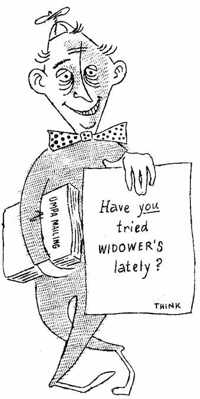Difference between revisions of "Harry Turner"
Mark Plummer (talk | contribs) |
Mark Plummer (talk | contribs) |
||
| Line 3: | Line 3: | ||
A [[UK]] [[fan]] and [[pro]] [[artist]], '''Harry E. Turner''' created art for [[fanzines]] and professional publications and had a successful career as a graphic designer. In the late 1930s, he did the best [[fan art]] produced anywhere. | A [[UK]] [[fan]] and [[pro]] [[artist]], '''Harry E. Turner''' created art for [[fanzines]] and professional publications and had a successful career as a graphic designer. In the late 1930s, he did the best [[fan art]] produced anywhere. | ||
| − | Turner was a founding member of the [[Manchester Interplanetary Society]], and one of the experimenters who was hauled into police court when their rocketry trial blew up. He attended the [[Second British Convention]] in 1938 and the [[Third British Convention|third]] in 1939, both in [[London]]. He provided cover artwork for [[fanzines]] ''[[Novae Terrae]]'', ''[[New Worlds (Carnell)]]'', ''[[The Satellite]]'' and ''[[The Fantast]]'', and a single issue of ''[[prozine]] [[Tales of Wonder]]''. In 1997 an issue of ''Novae Terrae'' with one of covers was displayed in an exhibition about Arthur C. Clarke in [[London]]'s Science Museum. | + | Turner was a founding member of the [[Manchester Interplanetary Society]], and one of the experimenters who was hauled into police court when their rocketry trial blew up. He was also a member of the [[Science Fiction Association]] (SFA), joining in October 1937 although he later professed himself a [[fanarchist]]<ref>In ''[[Futurian War Digest]]'' #22 (August 1942) where he seems to have been the second person to use the term, marginally trumped by [[Doug Webster]] who used it in JUly.</ref>. He attended the [[Second British Convention]] in 1938 and the [[Third British Convention|third]] in 1939, both in [[London]]. He provided cover artwork for [[fanzines]] ''[[Novae Terrae]]'', ''[[New Worlds (Carnell)]]'', ''[[The Satellite]]'' and ''[[The Fantast]]'', and a single issue of ''[[prozine]] [[Tales of Wonder]]''. In 1997 an issue of ''Novae Terrae'' with one of covers was displayed in an exhibition about Arthur C. Clarke in [[London]]'s Science Museum. |
In 1941, he published the first issue of his [[fanzine]], ''[[Zenith]]'', with his future wife, [[Marion Eadie]] (m. 1942). Four additional issues were published before April 1942 when he entered the [[army]] during [[World War II]], when he spent much of his service in India. A sixth, and final issue, appeared in June 1953. | In 1941, he published the first issue of his [[fanzine]], ''[[Zenith]]'', with his future wife, [[Marion Eadie]] (m. 1942). Four additional issues were published before April 1942 when he entered the [[army]] during [[World War II]], when he spent much of his service in India. A sixth, and final issue, appeared in June 1953. | ||
Latest revision as of 02:43, 29 August 2024
(August 8, 1920 – January 12, 2009)
A UK fan and pro artist, Harry E. Turner created art for fanzines and professional publications and had a successful career as a graphic designer. In the late 1930s, he did the best fan art produced anywhere.
Turner was a founding member of the Manchester Interplanetary Society, and one of the experimenters who was hauled into police court when their rocketry trial blew up. He was also a member of the Science Fiction Association (SFA), joining in October 1937 although he later professed himself a fanarchist[1]. He attended the Second British Convention in 1938 and the third in 1939, both in London. He provided cover artwork for fanzines Novae Terrae, New Worlds, The Satellite and The Fantast, and a single issue of prozine Tales of Wonder. In 1997 an issue of Novae Terrae with one of covers was displayed in an exhibition about Arthur C. Clarke in London's Science Museum.
In 1941, he published the first issue of his fanzine, Zenith, with his future wife, Marion Eadie (m. 1942). Four additional issues were published before April 1942 when he entered the army during World War II, when he spent much of his service in India. A sixth, and final issue, appeared in June 1953.

In the 1950s, he published Now & Then with Eric Needham.
Soon after doing publications for Loncon, the 1957 Worldcon, Turner gafiated, returning to fannish activity after about 20 years, apparently nudged into revenance by Ethel Lindsay.
In 1978, he published Triad Optical Illusions and How to Design Them and later Six Variations on a Monkish Theme. He was art editor of Zimri and one of his covers won the Checkpoint Fan Poll for Best Fanzine Cover in 1974. From 1997 he provided several covers for Banana Wings.
The Turners lived in Romiley, Manchester, and had three sons. Their son Philip H. Turner is also a fan and sf writer.
- Biographical website.
- Entry in The Encyclopedia of Science Fiction
- Harry Turner in Internet Speculative Fiction Database
- “Manchester first Rocket Scientists” (podcast with Turner’s wife, Marion Turner, and son, Philip H. Turner)
- Astroneer [1953]
- Grin [1955]
- Hot Air [1941
- Now & Then [1954–57] (with Eric Needham for OMPA)
- Six Variations on a Monkish Theme
- Triad Optical Illusions and How to Design Them [1978]
- With the Archeologists [1941]
- Zenith [1941–53]
Awards, Honors and GoHships:
- 1974 — Checkpoint Fan Poll for Best Fanzine Cover
| Person | 1920—2009 |
| This is a biography page. Please extend it by adding more information about the person, such as fanzines and apazines published, awards, clubs, conventions worked on, GoHships, impact on fandom, external links, anecdotes, etc. See Standards for People and The Naming of Names. |
- ↑ In Futurian War Digest #22 (August 1942) where he seems to have been the second person to use the term, marginally trumped by Doug Webster who used it in JUly.